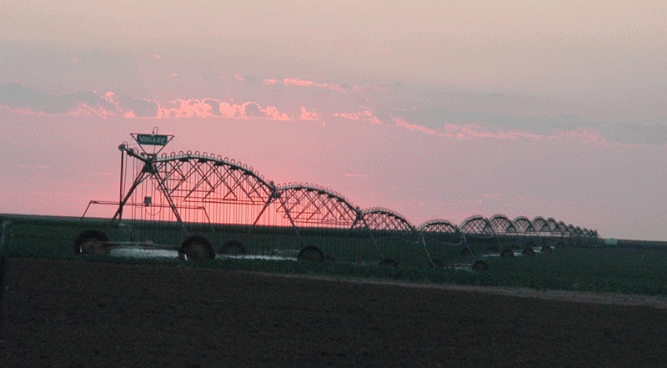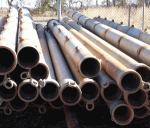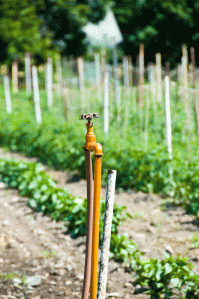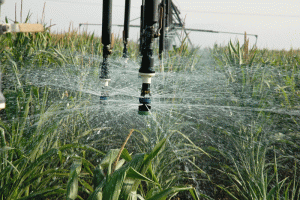I’ve been thinking about irrigating as we plan to sink cisterns beside the barn to store rain water. With precipitation starting to come in more intense episodes in the Midwest followed by long dry spells, it seems like the best idea.
This press release from UW-Madison writer Jill Sakai takes irrigation to the global level:

photo credit: http://www.flickr.com/photos/agrilifetoday/5011711079/
Irrigation increases global agricultural productivity by an amount roughly equivalent to the entire agricultural output of the U.S., according to a new University of Wisconsin-Madison study, according to Mutlu Ozdogan, a UW-Madison professor of forest and wildlife ecology and member of the Nelson Institute for Environmental Studies.
That extra plant life from irrigation increases carbon uptake from the atmosphere. This means that water shortages – already forecasted to be a big problem as the world warms – could contribute to yet more warming through a positive feedback loop.
The new research quantified irrigation’s contribution to global agricultural productivity for the years 1998-2002, estimating the amount of carbon uptake enabled by relieving water stress on croplands. The results published August 25 in the journal Global Biogeochemical Cycles.
The study also shows that adding even a small amount of water to a dry area can have a bigger impact than a larger amount of water in a wetter region.

photo credit http://www.flickr.com/photos/jimmysmith/72877249/
Interestingly, Ozdogan found that, on average, worldwide irrigation is currently conducted close to the optimal level that maximizes gains, and while this may be good news for current farmers, it implies limited potential for irrigation to boost future productivity even as food demands increase.
“Now that we have spatially-explicit maps of how much irrigation is increasing carbon accumulation, we have good information about the value of the water going into those areas. We might be able to come up with a value of carbon in those areas as well,” he says. “Of course the flip side of this is that, in many places around the world, if we keep irrigating we are either going to run out of water or degrade soils because of salinity issues.”

photo credit http://www.flickr.com/photos/pcarpen/827230580/
Ozdogan says, a better understanding of the links between irrigation, productivity, and carbon will help researchers look at downstream effects of factors that influence each of those elements – for example, how water shortages in agricultural regions may affect regional carbon cycles and climate.
The study continues a history of work from the UW-Madison’s Center for Sustainability and the Global Environment that includes the development of several freely available climate and ecosystem models, maps, and datasets . This research was partially supported by a National Aeronautics and Space Administration Applied Sciences Program grant.
Are you irrigating what you grow? How?
Categories: Uncategorized

I have been experimenting with clay pot or olla irrigation. I have three boxes on my balcony which have only been watered by rain or got the water from the pots. Normally balcony plants dry out very quickly but these have kept going even through a month of no rain.
http://urbanhomestead.org/journal/2008/03/24/using-ollas/
The great thing about clay pots is that if they break they can be added to the soil as they still retain moisture, so nothing wasted and no damage to the environment after use.
Thanks for the comment, Joanna
I love clay pots too for all the same reason.
I thought one of the most interesting points in the global irrigation piece was how a very little water can make a big difference in dry soil. I found that very encouraging.
It makes it really worth collecting that little bit of extra water during a downpour and saving it for a NON-rainy day.
Here in Latvia the spring can be relatively dry but there has been so much water in the soil due to slow snow melt that it doesn’t seem to matter and then in August there is a lot of dew in the mornings and even though the soil has been quite dry this year the plants seem quite happy, so I guess that proves your point very well
Thanks to Joanna for the link regarding the olla pots! What a wonderful idea!